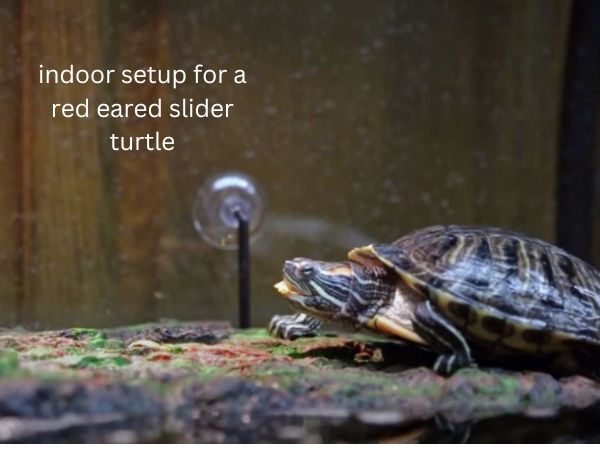red eared slider constipation | turtlevoice
Today we discuss red eared slider constipation. Are you the proud owner of a Red Eared Slider and worried about it becoming constipated? If so, don’t worry – constipation is relatively common in turtles, especially when they’re still young.
We’ll also provide information on how to recognize if your turtle is having problems and suggest treatments that may be necessary to treat existing cases of constipation. With the right knowledge, prevention techniques, and treatment options at hand, you can rest easy knowing that your little reptilian buddy will stay as healthy as possible!
5 Causes of red-eared slider constipation:
- Lack of dietary fiber: Red-eared sliders require a high-fiber diet including leafy greens such as kale, spinach, collards, and other vegetables like sweet potatoes or squash. If their diet lacks fiber, they may become constipated.
- Dehydration: Slider turtles need plenty of water to stay hydrated; if they don’t have enough access to drinking water they can easily become dehydrated which leads to constipation due to lack of moisture in the gut area.
- Overfeeding: Feeding your turtle too much food (or too many pellets/commercial foods) can cause constipation because it fills up the space in their stomachs preventing them from eating enough fibrous material.
- Intestinal parasites: Some intestinal parasites that infect the turtle’s digestive tract can lead to inflammation and blockages within the intestines which result in constipation for your pet turtle!
- Stress or low temperatures: Stressful environments (caused by poor tank set-up/maintenance) or cold temperatures can lead to a decrease in appetite resulting in decreased pooping habits and ultimately causing constipation over time – make sure you provide an optimal environment and temperature insights that suits this species’ needs!
symptoms of constipation in red-eared slider turtles:
Constipation in red-eared slider turtles is a common and potentially serious health issue. Symptoms of constipation include lack of appetite, lethargy, discolored feces (normally dark green or black), abdominal swelling and/or bloatedness, straining when trying to pass fecal matter, vomiting undigested food particles, shell erosion due to long exposures of feces that was not expelled correctly from the body cavities. If left untreated for too long symptoms can progress into a more serious condition known as gastrointestinal stasis which can be life-threatening if not treated immediately.
Treatment of red-eared slider constipation:
Constipation in red-eared slider turtles can be treated with hydration and diet modification. Increasing the water content of their environment, providing more access to fresh water, ensuring they have enough dietary fiber to promote regular bowel movements, and avoiding high-fat foods are key steps of treatment.
Additionally, supplements such as probiotics may help restore balance to the bacterial flora in their guts which can also aid in relieving constipation. Lastly, if needed a veterinarian may prescribe medications for severe constipation cases.
caring for red-eared slider constipation:
Constipation in red-eared sliders is a very common issue that can be easily solved with a few simple steps. Firstly, it’s important to ensure your pet’s diet is appropriate and contains high-fiber vegetables such as lettuce, zucchini, or squash.
Secondly, soak the turtle in warm (not hot) water for 10 minutes per day which helps to stimulate defecation.
Lastly, feeding your red-eared slider small amounts of vegetable oil may also help ease constipation.
faqs for red eared slider constipation:
Provide your slider with filtered, dechlorinated water. If possible, give them access to a shallow pool of clean water that they can swim in. Increase the amount of vegetable matter in their diet, such as leafy greens and vegetables, to help keep them hydrated.
You may also want to consider adding a water-soluble fiber supplement to their diet. Finally, make sure your pet slider is getting regular exercise and do not overfeed them. This can all help with constipation.
Giving your slider a treat for constipation relief can be done by providing them with high-fiber vegetables such as lettuce, kale, or carrots. Choose foods that are easy to digest and help move food through the digestive system. You may also want to add fiber supplements, such as psyllium husks, to your slider’s diet.
To improve your constipation, make sure you are drinking enough fluids and eating a diet rich in fiber. Exercise regularly, at least 30 minutes a day, and make sure to get enough sleep.
Avoid foods that are high in fat and processed sugar. You may also want to talk to your doctor about taking a laxative or other medication to help regulate your bowels.
Finally, try relaxation techniques like deep breathing and mindfulness to reduce stress levels, which can contribute to constipation.
Yes, turtles can get constipated. Constipation in turtles is caused by an improper diet or when their digestive system isn’t working properly. To prevent constipation in turtles, it is important to feed them a balanced diet and provide enough water. Regular exercise also helps with digestion. If your turtle does become constipated, it is important to seek veterinary advice.
final word:
Has your red eared slider been feeling a little off lately? Don’t despair! There are plenty of ways to help ease their discomfort and get them back on track. For instance, try introducing more water into their diet or add wet food as part of meals – not only will this be beneficial for digestion but it’ll also make eating all the more enjoyable!
You can also give your pet a soothing warm bath, or perform some gentle tummy massages. With just a few simple steps and lots of love, you can bring sunshine (or rather swimmin’) days back into your scaly sidekick’s life in no time at all!

